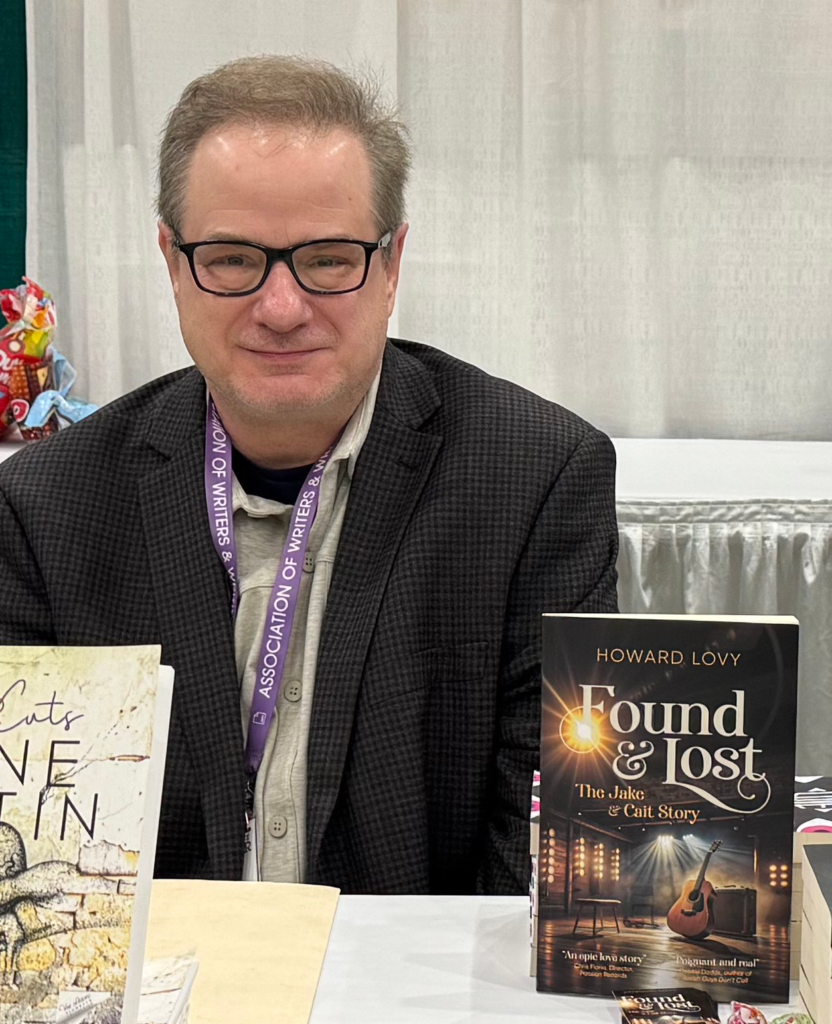
Howard Lovy is a veteran journalist, book editor, and author with 40 years of experience covering topics ranging from science and technology to Jewish issues. His work has appeared in Publishers Weekly, Longreads, The Jerusalem Post, and many more. A former executive editor of Foreword Reviews, he also hosts a podcast for the Alliance of Independent Authors. Howard lives in Northern Michigan with his wife, Heidi, and their dog, Henry.
Found and Lost: The Jake and Cait Story follows guitarist Jacob Rosner and violinist Caitlin Doyle, who, as young musicians in 1985, created something transcendent each time they locked eyes and finished each other’s musical phrases—until the music stopped. Forty years later, in 2025, their long-forgotten song unexpectedly goes viral, pulling them back into each other’s lives. This novel examines love, aging, faith, fame, and the passage of time.
Found and Lost: The Jake and Cait Story

“While Found and Lost is great fun, the novel also asks some important questions: How do we change as we grow older? Can commonalities transcend our differences? Can we truly forgive another — or ourselves?” – Diane Gottlieb, Jewish Book Council
Also, Howard talks to Diane Gottlieb about the themes behind the novel: the passage of time, the power of music, and what happens when your beshert (soulmate) is not what you expected.
In 1985, they met by chance.
As a young guitarist and violinist, Jake and Cait created something transcendent each time they locked eyes and finished each other’s musical phrases…until the music stopped.
Forty years later, the song that started it all brings them back together. But time changes everything.
Faith will test them. Regret will haunt them. But the music…might just save them.
Sometimes, the only way forward… is to play the song from the start.
“As a Jewish woman, married to an Episcopal priest for almost fifty years, I have seen so much writing that stereotypes or even demeans the beliefs of ‘the other.’ Because the love in this novel involves faith, the creation of the music is mystical. Lovy describes the different belief systems meaningfully but nonjudgmentally. This is possible because of the dynamic and beautiful characters that the author has created.”
Kresha Richman Warnock, Author/Essayist
“Joins the ranks of beloved fictional rock and roll stories like Daisy Jones and the Six, Mary Jane, and Songs in Ursa Major. I loved Jake and Cait’s conversations about religion, their values, and songwriting, and really cared about all of the characters. A story so poignant and real it seems as if it were true. Great fun!”
“Ultimately, this novel is a beautiful tale of love lost, and music found, and will appeal to anyone who has ever looked back at their life with yearning and imagined what could have been. A gripping and moving debut by a multitalented author.”
Order Now!

Goodreads Reviews
“This novel was a beautiful exploration of music, relationships, and spirituality. I wished these were real musicians. I wanted to hear their music! I could see how this novel could be adapted into a movie or series someday.”
“The pacing kept me wanting to read more of Jake and Cait. I finished about half of it on a flight, then the rest on the connecting flight–it was so engaging. It’s well written, researched, and paced. Highly recommended!”
“The love of music is a central theme and I enjoyed all the musical references. The writing style is engaging and it is easy to read. Conveying emotion is the author’s strength and I found myself teary-eyed several times in the story.”
 Subscribe to Howard’s Newsletter
Subscribe to Howard’s Newsletter


